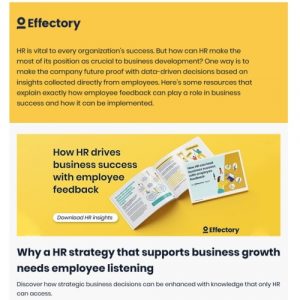What effect will the Covid19 pandemic have on our lives, our society, and our economy? How can we anticipate what’s to come? Emotions run high and many companies face uncertainty, not only because of the Corona virus itself, but also because of the decisive actions taken by governments all over the world to curb the pandemic. But what does it all mean for your organization?
Corona: 9 Management Lessons to Keep Your Organization Healthy

There are obvious concerns about employee health and the rate at which the virus is spreading, and management teams are confronted with massive challenges to their businesses. These range from potential cash flow problems to concerns about staff availability when schools and child care facilities close.
There are also acute operational matters, for example in terms of working from home and taking extra protective measures to ensure safety of vulnerable employees. There are nine clear lessons we learned from other crises, observing them through the lens of our field of expertise, employee engagement. Watch the video of the webinar we hosted on this topic, or read on below the video.
1. Act
In times of uncertainty, employees expect leadership from their management. Everyone now suddenly looks at “the boss”, especially in organizations where decision making is very decentralized, and where employees are used to a high degree of independency and autonomy. If you continue to expect the same high degree of independency and autonomy from your employees, you will not meet their needs. You can obviously delegate certain actions, but now is the time to lead!
Employees expect concrete measures to be taken, even if there may be a downside to that. Where normally there would be plenty of time to deliberate on the interests of all parties affected by your decisions, it is now speed that matters.
2. Stay calm
One of the most difficult things about the Corona crisis is that it is still completely unclear how long the virus and all its wide-ranging consequences will continue to affect us. The question is: are we dealing with a temporary dip, which may be followed by a large recovery due to increased demand in the second half of the year, or the start of a protracted recession? There are major differences between sectors.
Prepare for different scenarios. Decide at which moments or at which events you want to make which decisions. The magnitude of the total impact of Covid19 is likely to become clearer in the coming weeks and months.
Most importantly, fear is a bad advisor. Experience from previous crises tells us that companies which opted to make ad-hoc decisions, such as major layoffs, in a sort of panic often needed years to recover.
3. Recognize the human element
In almost every country, leading (state) agencies provide clear guidelines on how you as an employer can protect the health of your employees.
Employees are concerned about their own health and that of their loved ones. They also worry about all kinds of operational matters: can I work from home? Is care for my children available? How can I take care of my parents? They may also be worried about whether their job is at stake.
Make it clear to your employees that you are aware of their concerns and will do your best to accommodate their needs. The extent to which this is possible will vary from organization to organization.
4. Communicate honestly
Unless you sell disinfectant hand soap, it is unlikely that your organization will get through this period completely unscathed. Your people know that better than anyone. So be open about the situation without panicking.
Make it clear that the health of your employees, customers, and suppliers is now your number one priority but remain honest about the impact it may have on your company.
Say it outright: “This crisis is damaging to our organization. We expect that the total impact will be X in scenario A and that this can increase to Y in scenario B.” Or: “It may cost us two (or three, or six) months of turnover.”
5. Provide clarity
Undoubtedly, your employees will have heard the first stories of layoffs at other organizations and it is only human to be concerned.
There are likely many people in your organization working under a probationary period or a temp contract. Offer them clarity on your principles about letting staff go. Would you judge them by added value or simply by their tenure?
If you do not clarify how you would deal with different contracts in the various possible scenarios, chances are these most vulnerable employees will freeze when you desperately need the commitment of everyone.
Receive the best HR articles in your mailbox
Subscribe to our newsletter and you will receive the best HR articles on a quarterly basis.
Sign up6. Share the rationale behind decisions
You can indicate that in order to guarantee sustainable employment, you will always make decisions in the best long-term interest of your organization. This may mean that, in the short term, difficult decisions will have to be made. State clearly what your principles are and how you are going to apply them.
Keep in mind that in many companies, employees have little understanding of the business side of your organization. Most employees may not be familiar with basic accounting concepts such as turnover, costs, profit, or cash flow. Explain step-by-step how the current situation affects your organization.
7. Communicate frequently
In times of uncertainty, your employees have a sky-high need for information. Make sure that management gives very frequent updates.
If formal lines of communication break down, gossip will become the primary source of information. This is precisely what we now observe on social media. Supposedly “objective” messages are shared, which later turn out to be fake news, but in the meantime they contribute to the prevalent feeling of uncertainty in society.
So actively encourage employees to ask any and all questions they may have and address their concerns in good conscience.
8. Support your managers
Your managers are now under high pressure. They share the concerns of all other employees, but additionally have the responsibility to lead in a very complex situation, which is changing every day or even every hour.
Provide managers the freedom to make quick decisions: leave it to their discretion to provide personal financial emergency assistance to employees and institute general rules which enable managers to make decisions quickly outside of the regular processes and procedures.
It helps if a number of guidelines are given centrally, such as “Safety always comes first” and “We don’t worry about working hours.”
9. Act with integrity and authenticity
“A friend in need is a friend indeed,” the saying goes. Your organization will reveal its true nature by how you act during this period.
Does your organization look after the health and personal situation of its employees, and does it want to contribute to preventing the further spread of the virus? Or does it put profits first?
It is not up to us to make a judgment on this. Your employees, however, will remember exactly how you chose to act for many years to come.
Togetherness is important, especially in times of uncertainty.
Inform your employees as well as possible, listen to their feedback, and use their ideas. Involve them in what your management has to do.
Communication and employee feedback are key. So, especially now, keep all lines with your employees open!
Book a free demo. See our solutions in action.
Effectory is Europe's Leading provider of Employee Listening Solutions. Schedule a product demo and discover how to enhance your employees' engagement.
Demo request
